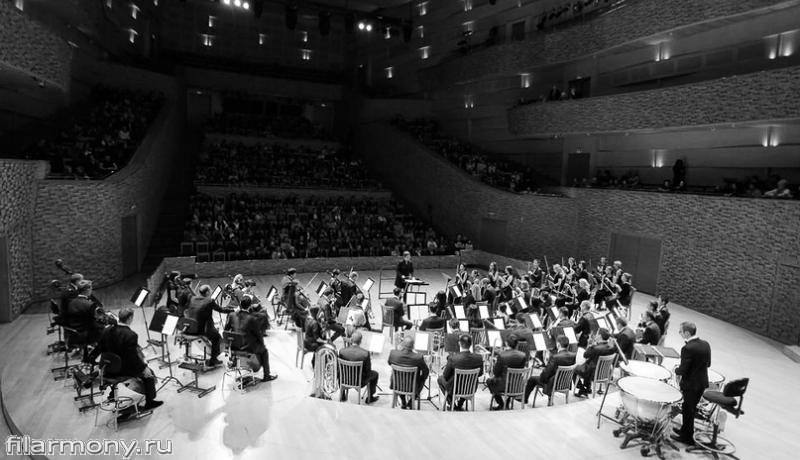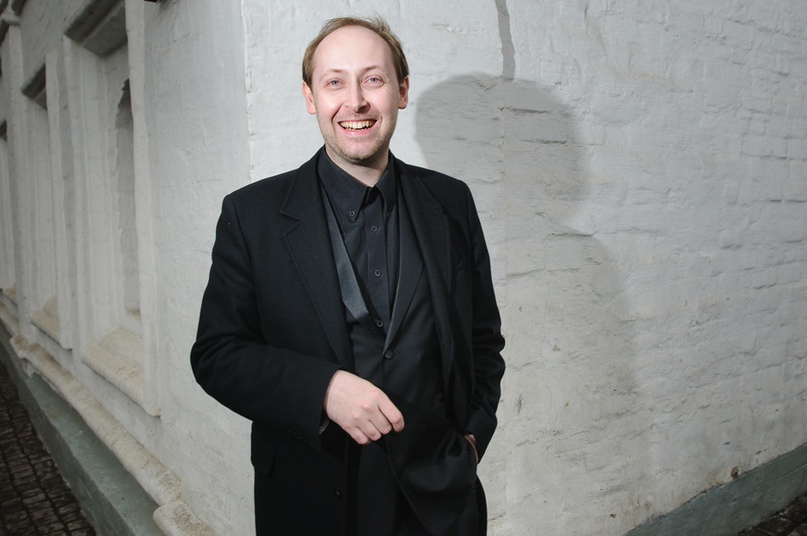
Text by Bayaru Takshina
Half-hour symphonic mystery called “The Deity” by Yaroslav Sudzilovsky is one of the brightest and remarkable works of the composer. Due to the music scores the work is rarely represented – right from the word go (2006) it has been performed only twice. The State Philharmonic of the Republic of Sakha (Yakutia) will perform “The Deity” symphonic mystery by Yaroslav Sudzilovsky in the frames of “Factory” IV International Far East Symphonic seminar-forum, which will be held in Yakutsk from February 23 till February 29 2020. Traditionally, the forum is held in corporation with “Eurasia. Dialogue. Classic” IV International Festival.
The composer Yaroslav Sudzilovsky tells about his “The Deity” symphonic mystery

Yaroslav Sudzilovsky
What is Deity? How did you come to creation of a whole symphonic mystery with such name?
I was writing this work according to my philosophy and conceptology. This is a kind of a point of view on a musician, on composer’s profession as on a phenomenon, which is more close to allegiance, holy orders and priesthood, as we do not create anything material, I wrote about it continually. But in general a composer always chooses author’s spiritual path and for me this is a defining moment in any creation. “Deity” is a universal power, which has to be invited to our world through this music and returned after. For me any symphonic work is a mystery and a symphonic orchestra is interesting for me exactly as a global phenomenon that is why all my orchestra works have a character of “extra idea”. “The Deity” is included in my Quintology, which has been created for 13 years and is not complete yet as I began working with 2 last parts only this year. In other words this symphonic cycle is like life circle and here is the conception: through different ages, changes in philosophic, conceptual positions of the author on global most important ideas for humanity. The First part “Garden of Gethsemane” was written during studying at Moscow Conservatory (2004), the Second – “The Deity” in 2006. “Illuminator” or “Bringer of Light” is the third part, which was finished only in 2019. It is the hugest by composition, so by composition and performance possibilities this part is the most complicated. There was no premiere yet. Fourth and fifth parts: “Birth of a NewHuman” and “Discovering Piece” are in process of creation. But “The Deity” is a phase work for me personally. It happened that the work became remarkable partly for the newest history – written by a new generation of authors (so called “Millenials”). For the last 15 years it is learnt, they write scientific works on it, though first it was really hard to produce it, there were protests against it, it was almost banned. But it came to life and it is here… I have to say that the work lives it’s own life independent from me and this is very unusual, but it is curious to watch from the side as if it was a grown-up child – at it’s paths and cycles…
How long did you work with “The Deity”?
Creating any work is of two parts. First is collecting material, that can take time, I spent much time for that – 2 years for “The Deity”. I have to mention that before “The Deity” there were some symphonic sketches, for example, “The Earth’s Breath”. I even used a fragment from “The Breath” in “The Deity”. The second part is music writing. I had been written music to “The Deity” for half a year. But again, 6 months means working day and night every day.
How can listeners perceive this music? What is the main idea of “The Deity” which is to be got?
This is a very complicated question. I do not follow the crowd with my work, I never actually thought about the public while writing it. This is different, the music is very religious according to the work and the aims. I understand that as a composer I have to form views and tastes of public, but in this case I think more about “The Deity” than about the listener. I do not know what people will get from the work but last two performances had a great impact on them. And this is a fact.
What is prognosis about performing of your music by the Symphonic Orchestra of the Yakutian Philharmonic? What do you think will your expectations be deceived? Since the music scores are really very complicated, the size is A2 – 48 lines.
I wait for performance of the work by the Yakutian Philharmonic tremblingly and with interest. At first sight the music scores may seem easy to perform, but it is not true. I trust Yakutian musicians very much, we have known each other for 10 years, our department of “SakhaMolOt” is one of the first, was founded in 2010 in corporation with V. Kazenin. I know that the level of Yakutian school is very high, so I hope it will work out very well. But the music scores are not that easy, the work needs much attention, patience and talent. First time (2006) “The Deity” was performed in the Big Hall of the Moscow Conservatory that time the orchestra was given 17 symphonic rehearsals and not everything was done as it had to be. Second time, after 10 years the Orchestra of the Moldova State TeleRadio represented the work on the International Festival of Modern Art in Kishinev. Now, for the third time the symphonic orchestra of the Republic of Sakha (Yakutia) will perform the work. I hopefully expect this performance.
After having listened to the mystery, this huge work, it seemed like there will never be 2 identical performances of “The Deity”, is it true? If so, what would you advise to the symphonic orchestra of the Republic of Sakha (Yakutia) while performing the work?
“The Deity” is not a work which can be performed differently every time. In general, my music is not aleatoric, but totalitarian. Everything was counted up to a comma there and all this is to be represented in the way I wrote. My only advice is to try to play by note sharply – if everything will be done as needed “The Deity” will be performed as expected.
